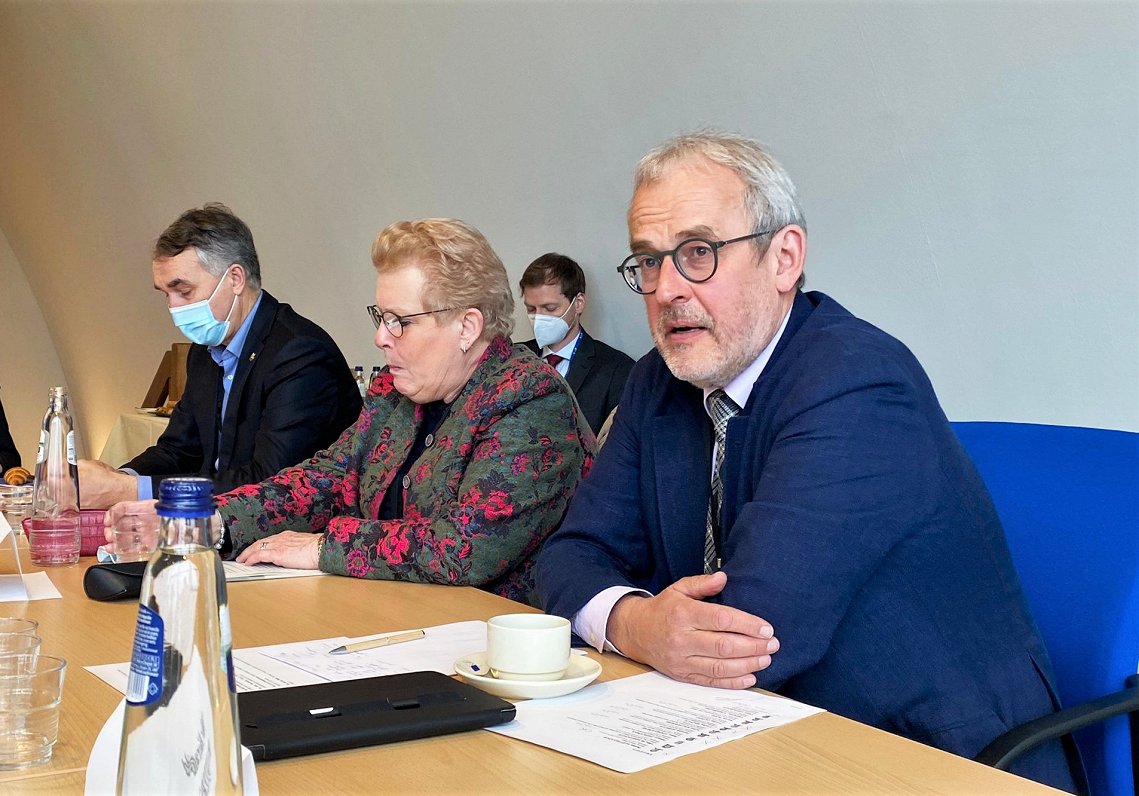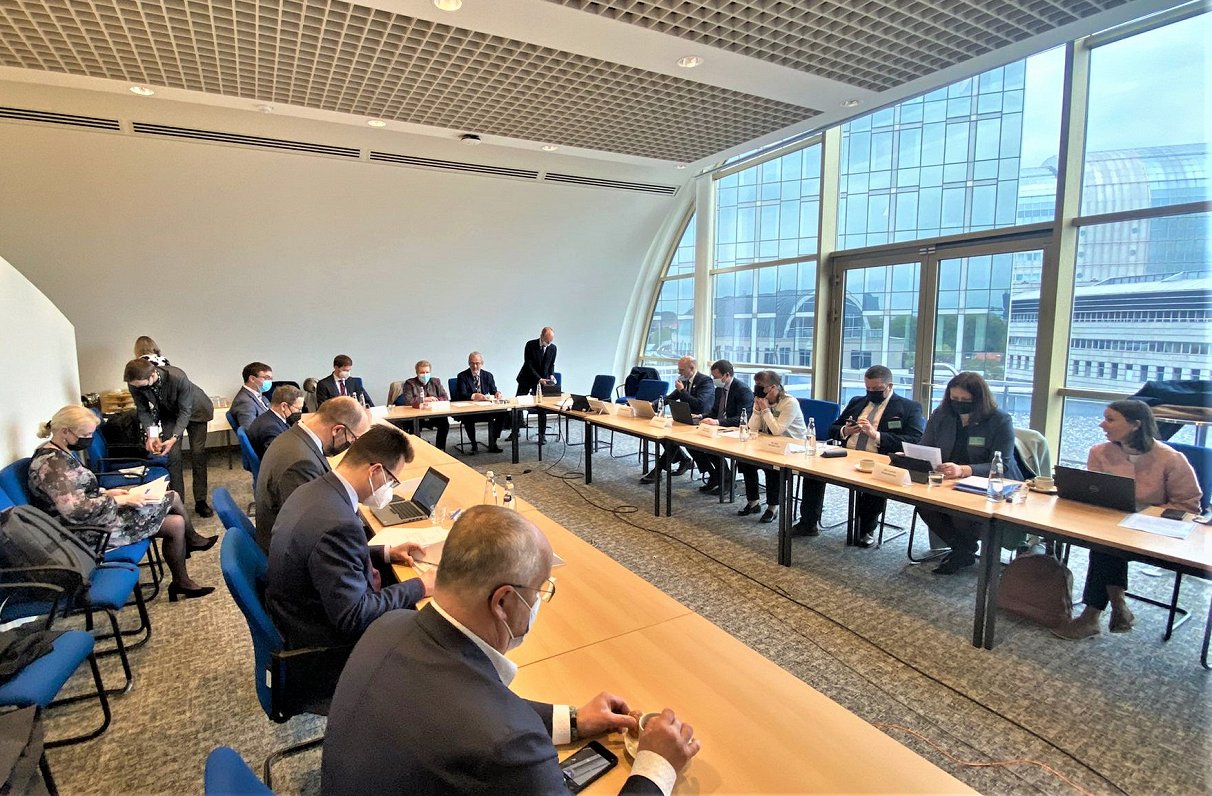The meeting was attended by MEPs from the Baltic States and Finland, and it was also attended by the North – Sea Baltic Corridor Coordinator Catherine Trautmann and Herald Ruijters, Director for Investment, Innovative & Sustainable Transport at DG MOVE.

"The meeting ensured a possibility to review progress of the Rail Baltica project and to exchange views on outstanding issues requiring action at the national and EU level aimed at ensuring further acceleration and efficiency in the project’s implementation. The increasing strategic importance of the Rail Baltica global project was stressed repeatedly, especially in the current geopolitical context. This was the first meeting of the group held in person after the outbreak of the Covid-19 pandemic," said a release from RB Rail, the joint venture overseeing the project.
“Several things have changed since the last time stakeholders of all the Member States and the high-ranking Commission representatives involved met. Firstly, Russia's aggressive war in Ukraine, despite its financial and commercial implications to the region, has demonstrated once again how important it is to see Rail Baltica as a geopolitical security project. Also, in relation to NATO enlargement, which the Finnish MEP particularly emphasized. Military mobility allocation, as a necessary part of the funding, is no longer discreetly glossed over, as in the past," said Roberts Zīle.
"Secondly, this strategic political objective must also stand up to the inevitable uncertainty of inflation forecasts. There will be challenges both in terms of changes in the supply of materials from Russia and Belarus, and in terms of possible contractors, for example in relation to China,” said Zīle.
Catherine Trautmann said: “Rail Baltica is not just a priority – it is an obligation. The Baltics have to be connected to the rest of Europe by all forms of transport. There are plane connections, there are road connections, but rail connections are not what they need to be.”
As previously reported, Rail Baltica is a 5.8-billion euro project to construct a high-speed railway line linking the Baltic states to the rest of Europe. 85% of costs are being met by European Union funds with the three Baltic states paying the remainder.






























